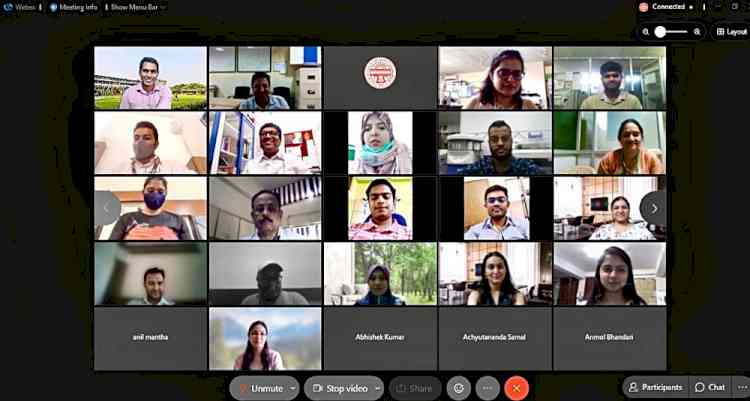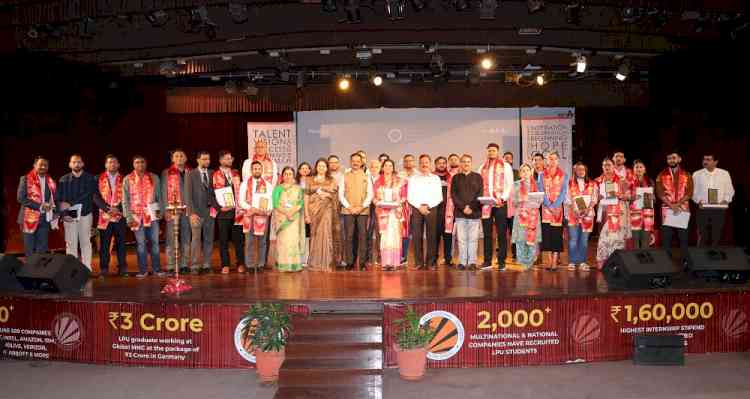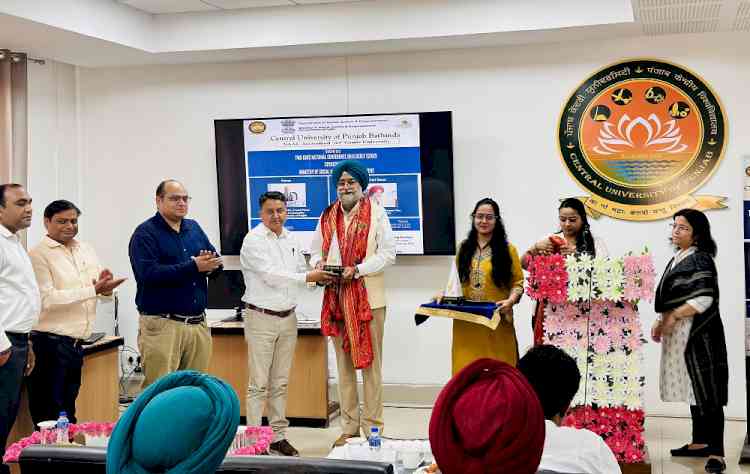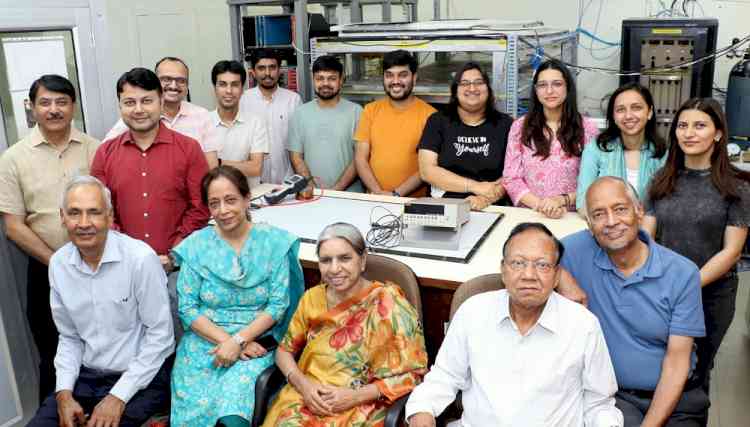Six day international school on biology of addiction concludes at PU

Chandigarh, August 28, 2021: Panjab University hosted a six-day school supported by the International Brain Research organization (IBRO) on the theme ‘Neurobiology of addiction’ from August 23-28, 2021. The school covered various topics from basic understanding of addiction, role of genetics and epigenetics and addition as a treatable brain disease. In addition, various speakers highlighted the vulnerability of adolescents to addiction predisposed by childhood experiences. Another highlight of the event is inheritance of addiction behavior.
The plenary lecture was delivered by Prof. Subhash C Pandey from University of Illinois at Chicago (USA) who talked importance of genetics and epigenetics of addiction especially. He has identified molecular signatures that are involved in the development of acute and chronic alcohol addiction behavior. He emphasized on role of cutting edge technology involving gene-editing technology using CRISPER-dCas9 in treating adolescent alcohol exposure-induced psychopathology in adulthood.
A keynote lecture is by Prof. Peter K Kalivas from Medical University of South Carolina (USA) shared his work related to the neurological and behavioral mechanisms and processes involved in intrusive thinking. His research identified mechanisms in our brains to create thought intrusions, and how these intrusions lead to maladaptive behavior. He identified molecules and neurocircuitry in the brain that underlie intrusive behavior. He work has lead to identification of new brain mechanisms that have become potential therapeutic targets for treating addiction in clinical trials.
Dr. Jag Khalsa and Dr. Gregory C. Bunt from the National Institute of Drug Health, NIH (USA), shared their work related to “Cannabis/Cannabinoids as medicines”. He discussed many success stories of cannabidiol (CBD) in treating medical conditions, since it is not psychoactive substance. During their talk emphasized the need for more studies related to cannabis/cannabinoid to that the benefits in treating disease conditions by cannabis are fully exploited.
Dr. Gurudutt Pendyala from University of Nebraska Medical Centre (USA) showed In their study that grandchildren inherit harmful prescription opioid effects Their research brings scientists one step closer to understanding the mechanisms of opioid addiction and finding a treatment for it. They are first to to show neural orexin pathway dis-regulation across multiple generations of mammals. Orexin helps regulate arousal, wakefulness and appetite. This neural dis-regulation happens when future generations are exposed to prescription opioids either in-utero or postnatally.
The closing ceremony was attended by Dr. Shashi Bala Singh, Director, National Institute of Pharamaceutical Research (NIPER), Hyderabad and Prof. V.R. Sinha, Dean of University Instuctions, Panjab University, Chandigarh. Prof. Singh emphasized the need of multi-institutional and multi-disciplinary research in neuroscience research. She emphasized need for more funds for mental health especially translational neuroscience.
The school provided theoretical and practical training on vide ranging topics related to understanding biology of addiction to young researchers from Asia-Pacific region and representing India, Malaysia, Pakistan and Bangladesh.
Prof. Rajat Sandhir, organizer of the event said that the school would help in promoting research in the area of addiction biology/medicine that ultimately may be a step closer in preventing substance abuse.


 cityairnews
cityairnews 








